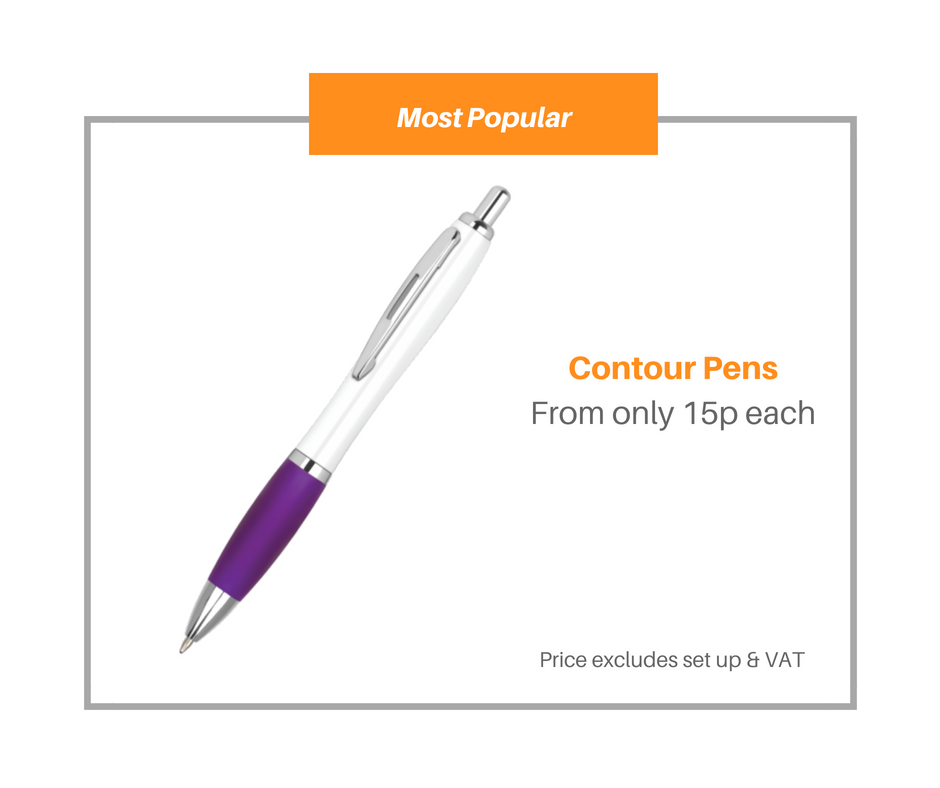
As a small business you’re unlikely to have the kind of advertising budget of the corporate big boys. They succeed in global domination by channelling a plethora of resources solely into the marketing of their brand. Without the kind of funding to support a huge campaign, growth can be considerably slower, and the impact of each action harder to measure in terms of results.
If you’re a smaller company you essentially have to be far better at marketing and much savvier than the big companies. Where should you be focusing your marketing? Do printed pens or business cards have a better effect?
1. Online advertising
When done right, digital marketing is hugely effective, and not everything you do needs to cost a lot. A regularly updated blog is a source of frequent, high quality onsite content. In a business of 12 staff, each of you could write just two posts a year and you’d be able to put out fresh content every two weeks without added significantly to staff costs. These posts could be written as and when people have time rather than to a specific deadline. Share these blog posts on social media channels for a bit of free marketing which doesn’t require any effort at all, and you’ll be well on your way to building a strong brand presence.
Building your online presence generally will help people to find your business and services, and through that you’ll hopefully be able to gain some momentum. This is a bit more specialist, and as such you will need to dedicate some funds towards it, but it will be well worth it when you begin to see some return.
2. When there is such thing as something for nothing
People love free. Whether it’s a trial of software, or two weeks membership to a reward scheme, there will be some sign ups. These sorts of offers will cost you very little and allow people to ‘try before they buy’ as it were. It can also help spread word of mouth as people are more like to recommend a product which they’ve used themselves and seen the value of.
If you offer a product, weigh up the pros and cons of offering a few freebies. You could send them out to blogs who review products, or offer a giveaway, but if your products are more expensive a competition might be the best option for you.
3. Traditional marketing
Whilst for big companies the brochure might be a dead concept, it’s still really efficient for smaller businesses, especially when they’re service based. You can see real and measurable returns. There are plenty of places you can have brochures printed, so shop around for a good deal. Make sure everything has been effectively proofread before you sign off on a project, because any mistakes will be costly to amend and can lead to a whole batch of brochures becoming completely unusable.
Networking similarly works for new and smaller companies, because building contacts expands the people you’ll be able to reach without having to do on going or expensive marketing campaigns. By meeting the right person at your local chamber of commerce they might introduce you to someone who will become your biggest client; really it’s all about who you know.
4. Getting the word out
Physical marketing using something like printed pens allows you to give a useful product to your clients so that they remember both you and your brand. The average printed pen will pass from hand to hand for months, maybe even years before it’s thrown away – for something which can cost just 12p per unit that’s great value.
More expensive promotional marketing objects can also be successful – if you look around your office now at the mugs you’re drinking your coffee from, at least one is likely to be a bit of marketing. You’re more likely to remember that particular brand name if it sits in front of you on a daily basis. If it also happens to be your favourite mug then that company has done very well indeed – it’s very unlikely to get thrown away in a clean out.
Whether you choose to just go for printed pens, or mugs, or a range of marketing materials, it’s always a good idea.




